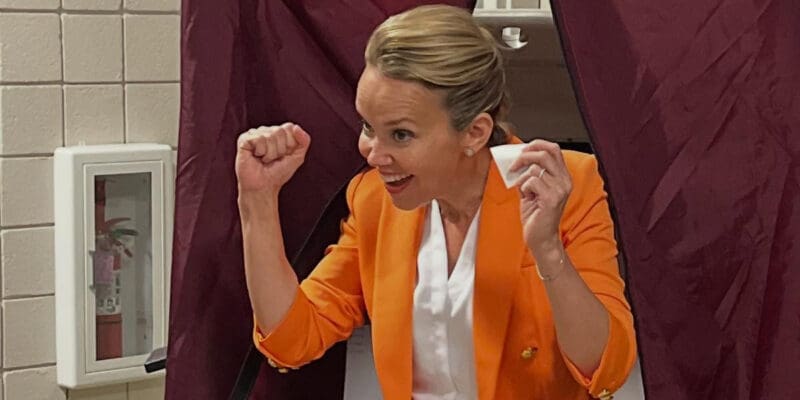On Saturday, Helena Moreno won the mayoral election in New Orleans, topping 50 percent in a crowded, but not particularly ideologically diverse, primary field.
Moreno, currently the city council’s vice president, avoided a runoff with one of her top competitors when she exceeded 50 percent support from voters in the municipal primary.
Results showed Moreno getting 55 percent of the vote, easily outdistancing her top rivals, fellow Democrats Louisiana state Sen. Royce Duplessis (22 percent) and City Councilman Oliver Thomas (19 percent). Republican Frank Janusa was fourth with 2 percent.
Moreno, 48, is set to be sworn in as the city’s second woman mayor in January. She also becomes New Orleans’ first Hispanic mayor.
She replaces the term-limited LaToya Cantrell, who will leave office under the cloud of a federal indictment charging her with wire fraud, conspiracy and lying to a federal grand jury.
Moreno was born in Mexico and raised in Houston, where her family moved when she was 8 years old. After studying journalism in college in Dallas, she became a television news reporter in Georgia, then in New Orleans starting in 2001.
She entered politics in 2008, first with an unsuccessful attempt to unseat former Congressman William Jefferson. Two years later, Moreno was elected to the Louisiana House of Representatives, representing District 93 in New Orleans from 2010-18.
Moreno won an at-large seat on the New Orleans City Council in November 2017 and was re-elected in November 2021.
Finally, NOLA has a new mayor and with that the very first and most significant test of her leadership is looming.
Facing a substantial negative budget balance caused by overspending and dependence on Federal largesse, her efforts will grant an insight into her philosophy.
The fix boils down to only two options, reform government and reduce spending, or make perfunctory reductions, tap reserves, and raise taxes. The choice will literally impact the viability of the city for decades to come. A tax increase would surely accelerate out migration, loss of jobs, and increased housing shortages. Draining dwindling reserves is a recipe for disaster.
Interestingly the only tax increase on the ballot went down to defeat. If I had to guess today, the strategy might be to propose tax increases knowing that they face sure defeat. Then, feinting as if there is no other choice, finally leadership would grudgingly surrender to spending reform.
Who knows, but clearly her ability to lead will be on full display.
Advertisement
Advertisement

